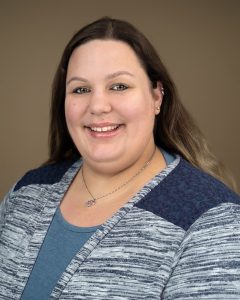| Written by Jessica Lelinho, MA, LPC, NCC, LCADC, C-DBT
It’s the weekend, you’re excited to go out with your friends to the local bar or restaurant. You promise yourself it’s only going to be one drink. Well one drink turns into two drinks and two drinks turns into three drinks. Next thing you know you’re drunk and passing out. You justify to yourself I only do it on the weekend. You go out with your friends and they say they scored. You tell yourself I’m never going to do drugs but it’s only this one time. So you give into the peer pressure and use the drug. What starts as social usage turns into occasional usage which turns into monthly usage and before you know it, you’re hooked. But you’re still justifying your substance usage and minimizing the usage to make yourself feel better.

What is Addiction?
The American Society of Addiction Medicine has defined addiction as a treatable, chronic medical disease involving complex interactions among brain circuits, genetics, the environment, and an individual’s life experience. Individuals who are struggling with addiction are utilizing substances or engage in behaviors that become compulsive and continue to do so despite harmful consequences.
While we think of addiction as only being addicted to substances, The Cleveland Clinic discusses that addiction can be substance related and non-substance related. Common substances pertaining to addiction include:
- Alcohol
- Caffeine
- Cannabis (marijuana)
- Hallucinogens (PCP and LSD)
- Hypnotics, sedatives, and anxiolytics (sleeping pills, benzodiazepines, and barbiturates)
- Inhalants including paint thinner, aerosol sprays, gasses and nitrates (poppers)
- Prescription and non-prescription opioids (codeine, oxycodone, and heroin)
- Prescription and non-prescription stimulants, such as Adderall®, cocaine and methamphetamine.
- Tobacco/nicotine, such as smoking cigarettes and electronic cigarettes (e-cigarettes or vaping).
Common non-substances pertaining to addiction include:
- Gambling
- Eating
- Exercising or dieting
- Shopping
- Shoplifting or other risky behaviors
- Having sex
- Viewing pornography
- Video gaming (internet gaming disorder)
- Using the internet (such as on your phone or a computer)
Harvard Health published a blog post in which they discussed individuals viewing addiction as a problem of personal weakness, initiated for self-gratification, and the continued usage due to an unwillingness or lack of sufficient willpower to stop. It is believed by both clinicians and scientists that individuals who struggle with addiction are struggling due to their desire to escape both physical discomfort and emotional discomfort. Due to the individual’s physical and emotional discomfort it is believed that individuals are self-medicating to escape this physical and emotional discomfort.
Statistics on Addiction
American Addiction Centers published the following statistics in 2022 in regards to addiction:
- 46.8 million (16.7%) Americans (aged 12 and older) battled a substance use disorder in the past year
- 10.5% of Americans 12 and older had an alcohol use disorder within the past year.
- About 27.2 million Americans 12 or older (9.7%) reported battling a drug use disorder in the past year.
- That same year, 8 million (2.9%) of Americans 12 and older struggled with both alcohol and drug use disorders simultaneously.
- 21.5 million American adults (8.4%) suffered from both a mental health disorder and a substance use disorder, or co-occurring disorders in the past year.
What Causes Addiction?
While there is no single cause of addiction – The Cleveland Clinic identifies one cause of addiction to be changes in our brain chemistry. Additional causes that may contribute to addiction include:
- Genetics: Studies show that genetic factors are responsible for 40% to 60% of the vulnerability to any SUD. If you have a first-degree relative (biological sibling or parent) with a substance abuse disorder, you’re more likely to develop one. Scientists are working to locate specific genes that may contribute to this vulnerability.
- Mental health conditions: There’s a strong link between addiction and mental health conditions, such as depression, post-traumatic stress disorder (PTSD) and bipolar disorder. About half of the people who experience a mental health condition will also experience a substance abuse disorder SUD and vice versa.
- Environmental factors: Access to substances is a particularly significant environmental risk factor. Factors that increase the extent of exposure and the opportunity for substance use include the use of substances by a member of your household or your peers and being prescribed medications that can be misused, such as opioids or stimulants. Adverse childhood experiences (ACEs) also play a role. ACEs are stressful or traumatic events during childhood. ACEs are strongly related to the development of a wide range of health problems throughout a person’s lifespan, including addiction.

Common Drugs of Abuse
WebMD discusses the most commonly abused drug besides marijuana is legal medication. While marijuana is currently legal in New Jersey, it is still an illicit substance for individuals 21 years and younger. The Cannabis Regulatory Commission provides the rules and regulations regarding legal usage of marijuana in addition to various other topics. WebMD identified the 11 most commonly abused drugs including:
- Barbiturates
- Benzodiazepines
- Sleep Medicines
- Codeine and Morphine
- OxyContin and Percocet
- Vicodin, Lortab, and Lorcet
- Amphetamines
- Methylphenidate
- Dextromethorphan (DXM)
- Pseudoephedrine
Symptoms of Drug Abuse
WebMD identifies the following symptoms of drug abuse:
- Feeling that you have to use the drug regularly — daily or even several times a day
- Having intense urges for the drug that block out any other thoughts
- Over time, needing more of the drug to get the same effect
- Taking larger amounts of the drug over a longer period of time than you intended
- Making certain that you maintain a supply of the drug
- Spending money on the drug, even though you can’t afford it
- Not meeting obligations and work responsibilities, or cutting back on social or recreational activities because of drug use
- Continuing to use the drug, even though you know it’s causing problems in your life or causing you physical or psychological harm
- Doing things to get the drug that you normally wouldn’t do, such as stealing
- Driving or doing other risky activities when you’re under the influence of the drug
- Spending a good deal of time getting the drug, using the drug or recovering from the effects of the drug
- Failing in your attempts to stop using the drug
- Experiencing withdrawal symptoms when you attempt to stop taking the drug
Recognition of Unhealthy Drug Usage
At times, it can be difficult to recognize the usage of substances within family members specifically pertaining to teenagers. It can be difficult to determine if the behavior is just “moodiness” or anxiety pertaining to drug usage. WebMD identifies the following behaviors that could indicate your child, teenager, or family member is using drug(s):
- Problems at school or work — frequently missing school or work, a sudden disinterest in school activities or work, or a drop in grades or work performance
- Physical health issues — lack of energy and motivation, weight loss or gain, or red eyes
- Neglected appearance — lack of interest in clothing, grooming or looks
- Changes in behavior — major efforts to bar family members from entering the teenager’s room or being secretive about going out with friends; or drastic changes in behavior and in relationships with family and friends
- Money issues — sudden requests for money without a reasonable explanation; or your discovery that money is missing or has been stolen or that items have disappeared from your home, indicating maybe they’re being sold to support drug use
Prevention of Drug Misuse in Teenagers
This is going to be an uncomfortable conversation to have but the best way to prevent drug misuse in teenagers and your children is by talking about it. The Mayo Clinic published an article which discusses how to prevent drug misuse in tweens and teens:
- Ask your teens view on drugs
- Discuss reasons on why they should not use drugs
- Take into consideration media messages
- Discuss how to resist peer pressure
- Be ready to discuss and answer questions about your own drug usage
Other preventative strategies identified by The Mayo Clinic include:
- Know your teens activities
- Establishment of rules and consequences
- Get to know your teens friends
- Keep track of prescription drugs
- Provide support
- Set a good example

Treatment Options
If you have a family member or friend who is struggling with substance usage, there are various treatment options available. Treatment options as identified by HelpGuide.org include:
- Detoxification
- Behavioral Counseling
- Medication
- Long-Term Follow Up
Additionally, the following treatment options have been identified to be helpful for someone struggling with substance use by HelpGuide.org:
- Intensive inpatient treatment: This is a short-term clinical treatment for individuals who have developed a physiological dependence on a drug and need assistance with withdrawal symptoms.
- Residential treatment: This type of treatment involves living at a treatment facility that will allow you to get away from work, school, family, friends, and triggers for usage while undergoing intensive treatment. The typical stay in residential treatment is 30 days to several months.
- Day treatment/Partial hospitalization programs (PHP): This treatment is for individuals who need ongoing medical monitoring but do not wish to live in a treatment facility and wish to live at home. The treatment program usually meets at the treatment facility for 20 hours a week and the individual is allowed to return home at the end of the treatment day.
- Intensive outpatient programs (IOP): This treatment is similar to PHP in that they do not require the individual to live at a treatment center. The difference between this treatment in comparison to PHP is that IOP only requires 9 to 19 hours of treatment per a week. In this treatment modality, individuals are able to schedule treatments around their school schedule and work schedule dependent upon the schedule at the IOP facility.
- Therapy: This can be one-on-one or group therapy that can assist the individual in development of coping skills, identification of triggers for substance usage, and exploration of the roots of addiction.
It’s important to remember that everyone’s needs are different and there is no “one size fits all” treatment option for those struggling with substance use. It’s important that the treatment is customized to that individual’s specific needs. Please note that the above treatment modalities should be conducted with a Licensed Clinical Alcohol Drug Counselor (LCADC).
Support is Key
Support is key when overcoming substance usage. Various support networks exist including but not limited to 12-step support such as:
Additionally those suffering from substance usage can contact Substance Abuse and Mental Health Services Administration (SAMHSA) or by calling/texting 988.
We may not think that our usage of drugs is a problem. It’s best to address any concerns regarding substance usage by having an open, honest conversation about drugs. These are just a few tips on how to provide support and address substance usage.
If you are looking to gain control of your substance use, don’t hesitate to reach out for help. Substance usage can lead to increasing mental health symptoms of anxiety/mood disorders, depression, bipolar disorder, post-traumatic stress disorder (PTSD) and various other mental health challenges. A licensed professional can assist you in overcoming these challenges.
When Jessica is not providing therapy, she enjoys spending time with her family and friends, listening to country music, cooking, baking, and going to the beach.
Check out Jessica’s professional bio here
Email Us: info@exceptionalwellnesscounseling.com
Call Now: (908) 415-2042
NEXT STEPS & RESOURCES
-
- Are you ready to take your first step? Reach out to us.
- Do you feel you maybenefit from counseling during this time? Take the first step.
- Interested in online counseling? Learn More
- Interested in group counseling? Learn More

